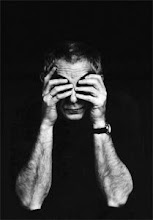
Twenty years ago, 'Do the right thing' was released, a film that focuses on racial tensions within a block of Brooklyn.
Today, if you ask someone about a film which tackles such a subject, they'll probably mention Paul Haggis's Oscar winning Crash, a propagandist tale about race relations in LA.
Mr Lee pointed out in his BFI independent interview (21/09/09@NFT), that the film was inspired by New York at the time, which doesn't in that form today. However, the issues still remain in our world and still to Mr Lee today, a black film director, working in America.
A trademark director, with his direct monologues, conveyor belt tracks and introductions to a Spike Lee joint.
Whilst 'Do the right thing' must not be confused as a film that's saying 'you're racist', it is talking about one's fear of the opposite race, love for peace within humanity and the hatred of the truth.
In one scene, Mookie, played by Spike Lee, asks Pino, whom his favourite basketball player, actor and singer are, who all turn out to be black people. Pino, a man living in shame from his friends mocking, in fear of the black men in the neighbourhood and using racism as a shield, can't justify his answer except by only saying 'it's different.'
This interview, was one of the greatest live interviews I have ever seen with a filmmaker, of how, like Spike Lee's skin colour, racial tensions within humans, will sadly never change.
Do the right thing, ends with two quotes, one by Maritn Luther King and Malcolm X. I shall end this entry, same as the film.
Violence as a way of achieving racial justice is both impractical and immoral. It is impractical because it is a descending spiral ending in destruction for all. The old law of an eye for an eye leaves everybody blind. It is immoral because it seeks to humiliate the opponent rather than win his understanding; it seeks to annihilate rather than to convert. Violence is immoral because it thrives on hatred rather than love. It destroys a community and makes brotherhood impossible. It leaves society in monologue rather than dialogue. Violence ends by defeating itself. It creates bitterness in the survivors and brutality in the destroyers.
- Dr. Martin Luther King, Jr.
I think there are plenty of good people in America, but there are also plenty of bad people in America and the bad ones are the ones who seem to have all the power and be in these positions to block things that you and I need. Because this is the situation, you and I have to preserve the right to do what is necessary to bring an end to that situation, and it doesn't mean that I advocate violence, but at the same time I am not against using violence in self-defense. I don't even call it violence when it's self-defense, I call it intelligence.
- Malcolm X
Today, if you ask someone about a film which tackles such a subject, they'll probably mention Paul Haggis's Oscar winning Crash, a propagandist tale about race relations in LA.
Mr Lee pointed out in his BFI independent interview (21/09/09@NFT), that the film was inspired by New York at the time, which doesn't in that form today. However, the issues still remain in our world and still to Mr Lee today, a black film director, working in America.
A trademark director, with his direct monologues, conveyor belt tracks and introductions to a Spike Lee joint.
Whilst 'Do the right thing' must not be confused as a film that's saying 'you're racist', it is talking about one's fear of the opposite race, love for peace within humanity and the hatred of the truth.
In one scene, Mookie, played by Spike Lee, asks Pino, whom his favourite basketball player, actor and singer are, who all turn out to be black people. Pino, a man living in shame from his friends mocking, in fear of the black men in the neighbourhood and using racism as a shield, can't justify his answer except by only saying 'it's different.'
This interview, was one of the greatest live interviews I have ever seen with a filmmaker, of how, like Spike Lee's skin colour, racial tensions within humans, will sadly never change.
Do the right thing, ends with two quotes, one by Maritn Luther King and Malcolm X. I shall end this entry, same as the film.
Violence as a way of achieving racial justice is both impractical and immoral. It is impractical because it is a descending spiral ending in destruction for all. The old law of an eye for an eye leaves everybody blind. It is immoral because it seeks to humiliate the opponent rather than win his understanding; it seeks to annihilate rather than to convert. Violence is immoral because it thrives on hatred rather than love. It destroys a community and makes brotherhood impossible. It leaves society in monologue rather than dialogue. Violence ends by defeating itself. It creates bitterness in the survivors and brutality in the destroyers.
- Dr. Martin Luther King, Jr.
I think there are plenty of good people in America, but there are also plenty of bad people in America and the bad ones are the ones who seem to have all the power and be in these positions to block things that you and I need. Because this is the situation, you and I have to preserve the right to do what is necessary to bring an end to that situation, and it doesn't mean that I advocate violence, but at the same time I am not against using violence in self-defense. I don't even call it violence when it's self-defense, I call it intelligence.
- Malcolm X
